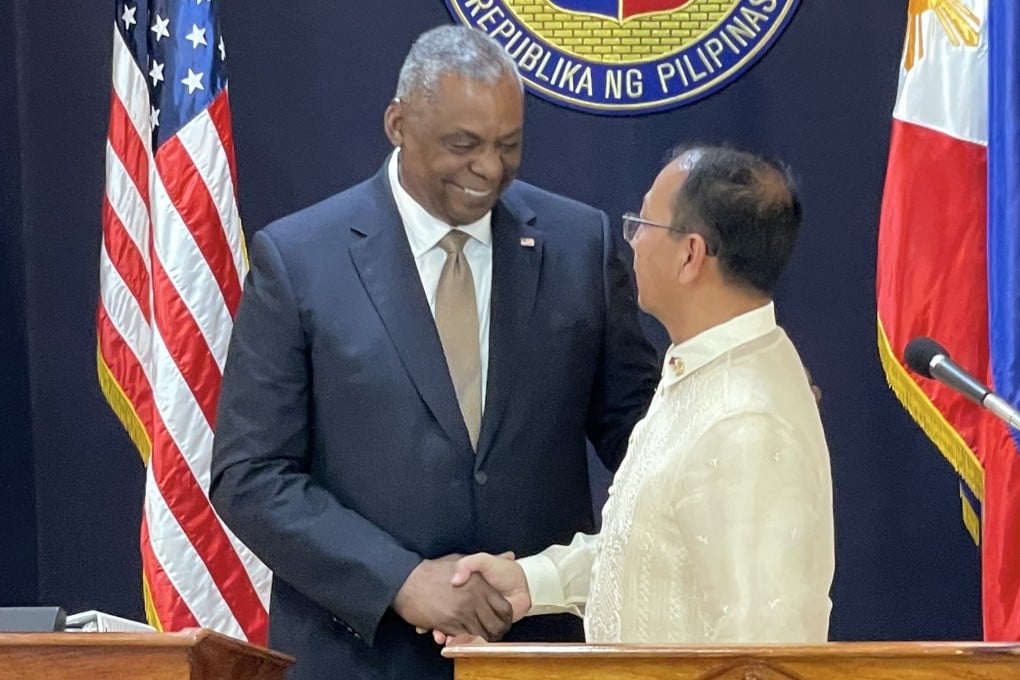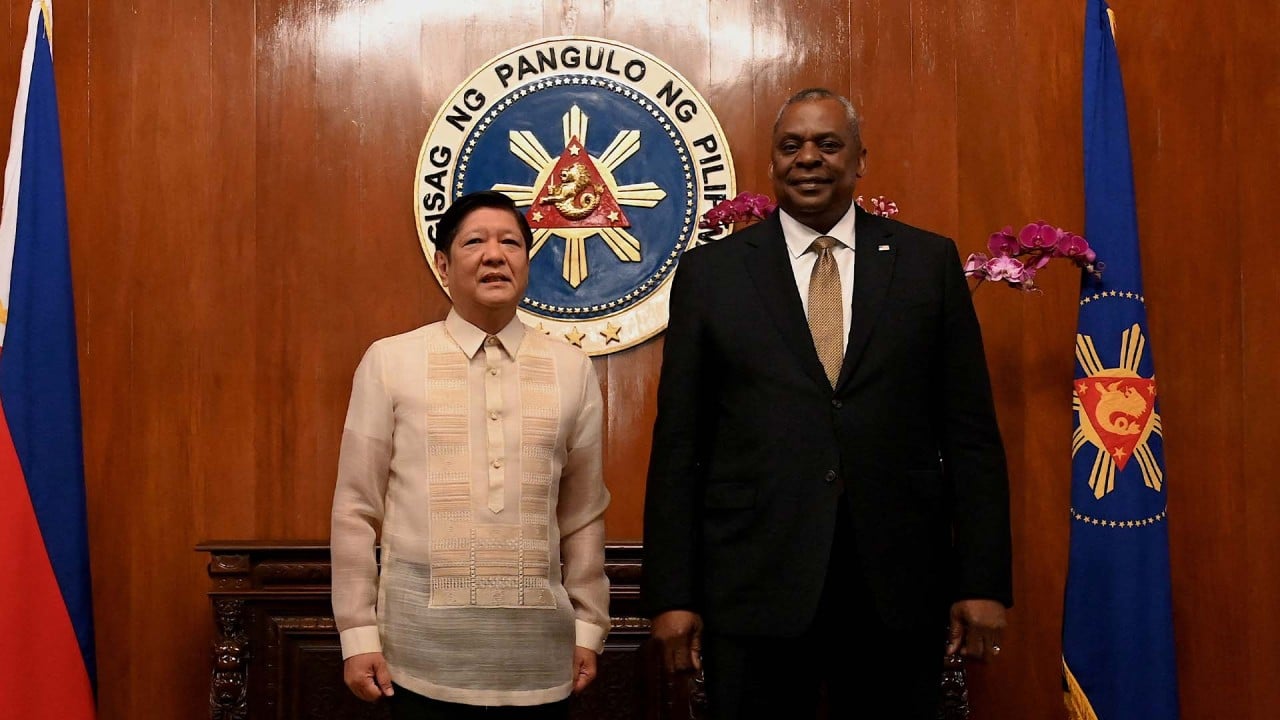Advertisement
Asian Angle | Will Philippines’ expanded military pact drag Manila into possible US-China conflict over Taiwan?
- The Enhanced Defence Cooperation Agreement is due to be renewed for second 10-year lease, allowing the US military to access 9 Philippine sites, up from the current 5
- Politicians have questioned the need for increased US military outposts, amid concerns they could be a magnet for attacks and discourage Chinese investment
Reading Time:4 minutes
Why you can trust SCMP
5

Long-time treaty allies Washington and Manila are set to boost their relationship with the renewal and expansion of their military accord amid the ongoing US-China rivalry.
The Enhanced Defence Cooperation Agreement (EDCA), which allows American troops to stay and operate facilities in the Philippines, is due to be renewed next year for a second 10-year lease. The US military will be able to access nine Philippine sites, up from the current five original agreed locations.
The refreshed EDCA demonstrates how Washington is revitalising its decades-old network of partnerships in its great-power rivalry with China. From the Five Eyes grouping to the Quad, Aukus pact and Chip 4, the US leverages its long-standing security role and technological clout to best Beijing. But without a robust economic pillar, military muscle and export controls may only go so far.
China remains the largest trade partner for most of the US’ allies and partners in the Indo-Pacific, and is increasingly becoming a key investor and infrastructure-builder around the world. Beijing’s reaction to Washington’s moves is likely to temper countries’ security engagement with the US, complicating America’s efforts to deter its rival.
This quandary is evident in two proposed additional EDCA sites: Subic and Cagayan. Once one of the largest US bases, Subic faces the South China Sea hotspot. After the base was decommissioned in 1992, it was transformed into a special economic zone and free port, hosting a shipyard formerly owned by beleaguered South Korean conglomerate Hanjin Heavy Industries. To forestall a possible Chinese acquisition of the distressed asset, a US private equity firm, Cerberus, bought it in November 2022.
Former Foreign Affairs Secretary Teodoro Locsin Jnr described the US$300 million transaction as the “biggest public-private partnership in the 75-year history of Philippine-US relations”.
But while there is value in citing national security to block Chinese attempts to take over a strategic property, one wonders if giving it to a financial company with no track record in shipbuilding makes any business sense.
Advertisement

